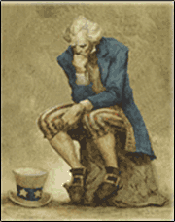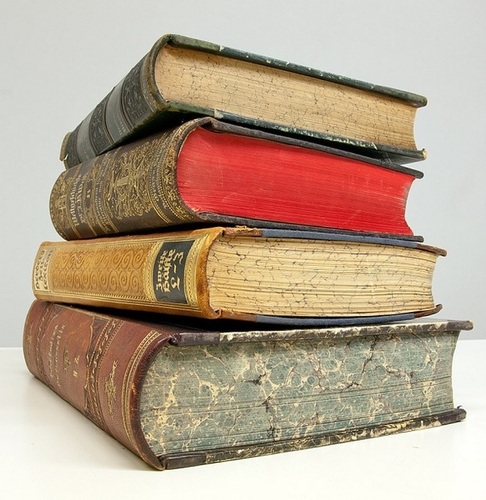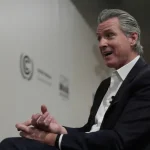
–>
July 9, 2022
It was Walter Benjamin who said that you could judge a man by the books he kept. Hitler kept books of Friedrich Nietzsche, Schopenhauer, and the German nationalist Fichte. Hitler had used the Nietzschean phrases ‘master race’ and ‘will to power’ in the 1934 Nuremberg party rally, famously filmed by Leni Riefenstahl. He also inherited Nietzsche’s walking stick after a visit to the Nietzsche archive in Weimar. Schopenhauer is quoted in Mein Kampf where he describes Jews as the ‘great masters of lies.’ However, the links of Nietzsche and Schopenhauer to Nazism are tenuous at best; Nietzsche despised anti-Semitism, for example. More in tone with Hitler’s philosophy was Johann Gottlieb Fichte, who, in his ‘Speeches to the German Nation’ in 1808, called for a ‘Volkskrieg’, or peoples war. It was Fichte’s claim of German exceptionalism, of the superior German language, which promoted a virulent German nationalism and an anti-Semitism which inspired Hitler.
‘); googletag.cmd.push(function () { googletag.display(‘div-gpt-ad-1609268089992-0’); }); }
Books are the concrete things, like music, which embody the poetic souls of nations. They paint pictures of a nation’s history and culture. The British and French are marked by their post-Enlightenment codifying of ‘reason,’ of scientific logic, of empiricism. The beliefs of Kant and the concept of individual rights dominates modern European states and institutions. The market, the individual and not tradition or community become the hallmarks of liberal democracy. Nietzsche claimed that with the death of God came the deification of reason but this has proved spiritually fruitless and, according to the New Right of Europe and Russia, modern man stands on an abyss rather than the ‘end of history’ utopia which liberal democracy had promised.
What Putin’s book collection shows is a remarkable similarity in style to Hitler’s. This synergy between Hitler and Putinism contradicts the traditional school of thought which sees Bolshevism as the nemesis to Nazism. The reality is that Putinism is far more aligned to a type of ‘Christian authoritarianism,’ of some tenets of fascism, than any socialist or Bolshevik leanings. Putin is an admirer of the white emigre philosopher Ivan Ilyin, a Russian nationalist who saw the Bolshevik revolution as a tragedy, and held a view of the citizen as holder of rights and responsibilities. The citizen, likewise, does not choose his nationality; Ilyin considered the idea of an independent Ukraine like a wound, a wound to a greater Russia. When Russian troops entered Ukraine in 2014, all of Russia’s governors and high-ranking officials were sent a copy of Ilyin’s Our Tasks which imagines a prototype legal regime of a post-Bolshevik era. Ilyin speaks of a ‘National dictator,’ politics is total and embodied in the leader. It is one of the right’s enduring themes, as outlined in The View from the Right by Alain de Benoist. In this the liberal democratic world has abandoned ‘Politics’ and ‘Power’ and this depoliticization of society means the weakening of the state and the proliferation of a myriad of third-party groups which ultimately weaken the state.
The twentieth century saw Bolshevism and Nazism as opposites. The idea, however, that they could be melded, spurred the thought of Putin’s other and greatest influence: Alexander Dugin. For Dugin follows the view of Jean Baudrillard in seeing the poverty of historicism and ‘end of history’ schema. History didn’t end in the 1990s as predicted by the liberal ‘end of history’ theorists. Baudrillard in The Illusion of the End gives a fascinating account of the debunking of the Marxist view of historical progression; history is ending, but only because it has lost its meaning. In fact, Russia must set itself against the liberal world, rather than be absorbed into it. It is this exceptionalism, a plurality of cultures, rather than a universalist liberal oneness, which illuminates the view from the right. Dugin, in his book The Fourth Political Theory argues that ‘There are no  stages and epochs, but only pre-concepts and concepts. In modern society time is seen as irreversible, progressive, and unidirectional. But this is not necessarily true inside societies that do not accept modernity. Dugin quotes Berdyaev’s concept of the New Middle Ages in which liberalism ends and is replaced by a return to a civilisation based on spirit and mysticism. The Fourth Political Theory is a concept which replaces the three ‘ideologies’ of the twentieth century; liberalism, communism, and fascism. Dugin’s National Bolshevism combines aspects of both communism and fascism. Although liberals, such as Francis Fukuyama, heralded the ‘end of ideologies,’ the modern world would appear to dispute this. Liberalism, argues the New Right, becomes an ideology itself, as seen in the values and prescriptive policies of globalised markets, woke cultural values, compulsory ‘human rights,’ and the vaulted position of the ‘individual.’
stages and epochs, but only pre-concepts and concepts. In modern society time is seen as irreversible, progressive, and unidirectional. But this is not necessarily true inside societies that do not accept modernity. Dugin quotes Berdyaev’s concept of the New Middle Ages in which liberalism ends and is replaced by a return to a civilisation based on spirit and mysticism. The Fourth Political Theory is a concept which replaces the three ‘ideologies’ of the twentieth century; liberalism, communism, and fascism. Dugin’s National Bolshevism combines aspects of both communism and fascism. Although liberals, such as Francis Fukuyama, heralded the ‘end of ideologies,’ the modern world would appear to dispute this. Liberalism, argues the New Right, becomes an ideology itself, as seen in the values and prescriptive policies of globalised markets, woke cultural values, compulsory ‘human rights,’ and the vaulted position of the ‘individual.’
‘); googletag.cmd.push(function () { googletag.display(‘div-gpt-ad-1609270365559-0’); }); }
But certainly, the greatest part of Dugin’s thought to influence Putin is his geopolitical thinking. Dugin espouses the concept of ‘Eurasianism’; a belief in the independent entity separated from both Europe and Asia and encompassing the Russian-speaking and also Slavic countries of the former Soviet Union. In this, the fascist glorification of war is played out in the Ukraine invasion, in the militancy of the expansionist Russian Federation. Therefore, this Eurasian expansion stands alone whilst the ‘NATO threat’ is used as a ‘simulacrum’ for justification. It comes as no surprise that Dugin’s earlier book The Basics of Geopolitics sits in pride of place on Putin’s bookshelf, essential reading also for the Russian military and the FSB (Federal Security Service). In the philosophy of Ilyin and Dugin is the myth of a virtuous Russia under attack from outside, from Jews, and Ukraine as part of an indivisible Greater Russia. They speak of Russia, like Spengler spoke of cultures, as a living organism.
Men like Heidegger in Nazi Germany and Ilyin in Russia saw themselves as surrogate ‘Philosopher Kings,’ driving history along. These philosophers are flattered by the deference, the flattery of the leader. But for Putin and Hitler the dialectic works the opposite to how the philosopher believes it to be. Rather than the gargantuan state being guided and spiritually enriched by the noble thinker; the Russian kleptocracy uses the philosopher to justify economic crime, to give an image of respectability to the banal and the brutal, often betraying the meanings of their philosophers. The Orthodox Church is also loaded into this usurpation of truth. Hegel, in one of his most famous quotes, said that ‘The Owl of Minerva only takes flight in the dusk.’ To this he meant that philosophical ideas are only learnt in hindsight, ‘after’ history has played itself out on the world historical stage. Philosophers are akin to the priests who survive the nuclear apocalypse in A Canticle for Liebowitz, Walter Miller’s post-apocalyptic science fiction novel. Forced to take shelter in a Cistercian monastery, they save the books of the previous civilisation from the chaos surrounding them, hoping that, out of the darkness, their ideas may be used once more in the cyclical ebbing and flowing of civilisations.
Brian Patrick Bolger has taught Political Philosophy and Applied Linguistics in Universities across Europe. His new book, Coronavirus and the Strange Death of Truth‘is available now in the UK and US.
Image: Ch. Maderthoner
<!– if(page_width_onload <= 479) { document.write("
“); googletag.cmd.push(function() { googletag.display(‘div-gpt-ad-1345489840937-4’); }); } –> If you experience technical problems, please write to [email protected]
FOLLOW US ON
<!–
–>
<!– _qoptions={ qacct:”p-9bKF-NgTuSFM6″ }; ![]() –> <!—-> <!– var addthis_share = { email_template: “new_template” } –>
–> <!—-> <!– var addthis_share = { email_template: “new_template” } –>





